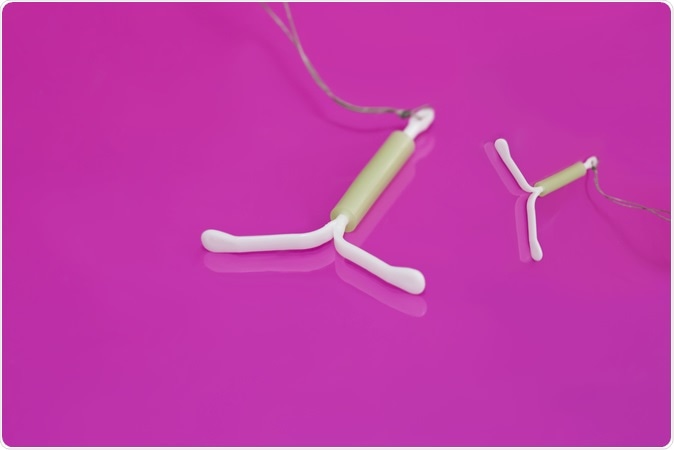According to a recent study, intrauterine devices (IUDs) used by women for contraception might lower the risk of getting cervix cancer compared to women who do not use this form of contraception. The review titled, “Intrauterine Device Use and Cervical Cancer Risk: A Systematic Review and Meta-analysis” from the Keck School of Medicine of USC appeared in the online November issue of Obstetrics & Gynecology.

Intrauterine device. Image Credit: Beate Panosch / Shutterstock
For this study the team of researchers looked at 16 studies that have already been published. For this they scoured through PubMed, Web of Science, ClinicalTrials.gov, scientific meetings and abstracts, dissertations, theses up until July 2016. In all of those a total of 4,945 women with cervical cancer were included and in all those studies there were 7,537 women who did not have the cancer. They analyzed various contributing factors and protective factors in the two groups of women from the study data of the studies.
Their analysis revealed that women who used IUDs are 36 percent less likely to get cervical cancers than women who do not use these. Lead study author Victoria Cortessis of the University of Southern California in Los Angeles said that the protective effect of IUDs can only be “hypothesized” at this time based on these results.
She said that it could be that these IUDs trigger an immune response that ends up strengthening the body to fight a viral infection caused by human papillomavirus (HPV). HPV infections have been linked to cervical cancer in several studies before and protection against these viruses can provide protection against cervical cancer. The immune reaction to the IUDs is caused due to the irritation that occurs when this device is inserted into a woman for contraception.
The researchers admit that theirs was a compilation of previously published study data and not an independent study. This means that not all of the studies were similar or at par in terms of research design. This could have influenced the results to an extent. Long term studies looking at only the association between IUD use and cervical cancer protection are needed, they write. Another problem with this study is the fact that the duration of the usage of the IUD or the age at which they were inserted was not studied in depth due to lack of data. Also the effect of providing HPV vaccine has not been taken into account in some studies. HPV vaccine is known to protect against cervical cancer.
However Cortessis still says that the “pattern” that emerged out of this review of studies was “stunning” and “not subtle”. It needs to be explored further to see if IUDs could be used not only as a contraceptive but also as a protective against cervical cancers. “The possibility that a woman could experience some help with cancer control at the same time she is making contraception decisions could potentially be very, very impactful,” she said.
IUDs
Intrauterine devices are usually thin wire loops or devices that are shaped like a T and measure less than an inch. They are inserted into the uterus with a small thread tail hanging out for removal. Their presence within the uterus prevents the fertilized egg from implanting and resulting in a pregnancy. They also can prevent fertilization of the egg in the first place. Thus they can act as effective contraceptives.
Cervical Cancer
Cancer of the cervix – mouth of the uterus – has being diagnosed in over 528,000 women leading to nearly 266,000 deaths according to the World Health Organization. By 2035, the WHO says the numbers would rise to over 756,000 diagnoses and over 416,000 deaths.